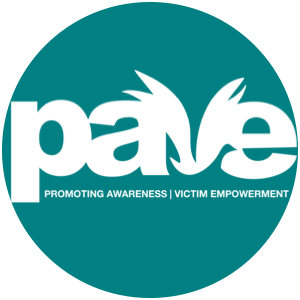Healing as a Personal Journey
As more businesses open up across the U.S. from the COVID-19 lockdown, less survivors are trapped inside their homes with their perpetrators. While some of the abuse survivors faced during COVID-19 may now be lessened, the process of healing is just beginning. Thus, it is important for survivors, friends, and family to recognize the personal process of healing after the abuse.
To experience domestic and sexual violence is to go through trauma. The trauma of these experiences can have different effects on survivors. Some of the more common effects are depression, PTSD, anxiety, eating disorders, suicidal thoughts, low self-esteem, and substance abuse, to name a few.
These psychological, physical, and emotional effects of trauma can be short or long-term. Many believe that PTSD is reserved for combat veterans, but the truth is that sexual assault survivors experience this mental health condition at alarmingly high rates. According to RAINN, 94% of women experience PTSD symptoms 2 weeks after their assault and 30% of female rape survivors experience PTSD symptoms 9 months after the experience. Additionally, sexual assault survivors are 6 times more likely to use cocaine and 10 times more likely to use other major drugs, according to RAINN. This, along with the other effects of trauma, can potentially derail a survivor’s life even further.
What is important to understand for both survivors and allies is the range that trauma presents itself in. All survivors have varying reactions to trauma. This can lead to the healing process varying from survivor to survivor. Healing is not linear, there is no time table for how long it can take to heal from sexual violence or domestic violence. For some it may take weeks, others months, or sometimes years. The amount of time it takes to heal does not show the strength or worth of a survivor though as all feelings and reactions to trauma are valid.
Healing and recovering from a traumatic experience can be painful and exhausting. For some survivors, they may not heal as fast as they would like. Others feel hurt and defeated when, after feeling well-adjusted for some time, they are triggered and feel distraught again. Healing not being linear is a sentiment that can be difficult to face, but also one that can empower survivors to recognize that it is normal for their emotions to feel both up and down. Ultimately, the end goal of many in their healing process is to get to the point where they recognize that this event happened to them but that their life and worth does not revolve around it. At this point, survivors may feel as though they have regained the power and control that they lost during their experience.
Healing is personal in timeframe and in the end goal, but it also is personal in the steps a survivor takes. There ultimately is no wrong or right way for a survivor to cope and process. For some, reaching out to friends, family, or a therapist to talk about what they went through can help them heal as they recognize what happened and work through their emotions. It is important to recognize, however, that not every survivor has a support system and that talking to friends or family about their experience may not be beneficial. Thus, it is important to reiterate that this process looks different person to person, and that is okay.
An important aspect of healing is self-care which is also something that fluctuates from person to person. Self-care can help cope with both the short and long-term effects of trauma. Physical self-care focuses on sleep, nutrition, and physical exercise as ways to energize one’s body. There is also emotional self-care which looks at being in tune with oneself. This form of self-care can be relaxing activities such as meditation, yoga, setting boundaries, spending time with people that make the survivor feel supported, or participating in fun activities. As survivors go through this journey of healing, it’s essential that the survivor focuses on themselves and what self-care and healing looks for them personally.
PAVE believes that it is essential to empower survivors as they embark on their personal journey of healing. Please know that we believe you, and you are not alone. If you are in need of assistance, PAVE is here to support you.
Written By: PAVE Outreach Intern, Kaitlin Durkin
